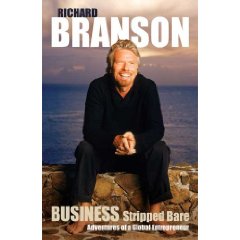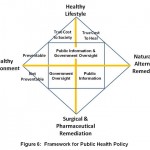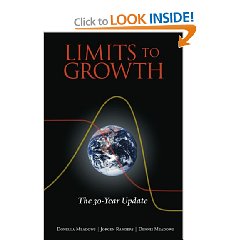 Raised to a Four Against the Extremist Reviews, November 18, 2008
Raised to a Four Against the Extremist Reviews, November 18, 2008
Rahm Emanuel
The extremist republican reviews are dismally childish. I am an estranged moderate Republican leaning Libertarian, and the authors lose one star for mis-reading Lincoln as a model, and a second for lacking a strategic or analytic foundation for actually governing but I restore the latter for balance. The plan as proposed is a good one, but is less than one third of what we need in the policy arena, and completely avoids the four reforms that are essential: Electoral Reform, Governance Reform, Intelligence Reform, and National Security Reform.
The authors are way too facile in blaming everything on Reagan and then on the Bush-Cheney regime, but they carefully avoid pointing out that Senator Phil Gramm (R-TX) screwed over the entire country with his complete deregulation of the financial industry (derivatives as fantasy cash), and that once the Clintonites discovered this, they chose to ride the wave and profit rather than acting in the public interest. They also fail to point out that Rubin was a mini-me version of Paulson, and both think only of Wall Street, not of home owners and the workers.
I am especially angry that the word “impeachment” does not appear in this book. The authors choose to ignore the 25 documented impeachable offenses by Dick Cheney, or the 935 documented lies told to the public by the Bush-Cheney regime, and they are especially disingenuous in failing to observe that Congress as a whole abdicated its Article 1 responsibilities to balance the power of the executive, or that Nancy Pelosi led the Democrats to new lows in being abject doormats–the authors could learn from Senator Robert Byrd in intellect, and Representative Cynthia McKinney in integral consciousness.
I am heartened as I move in to the plan to note that the authors see the reality that human capital needs completely different forms of nurturing than financial capital, but I am troubled by their obliviousness throughout the book to the fact that we are in the information age, and any Congress, any Executive, that does not move to create a Smart Nation is on death row…”walking dead man.”
Here is the plan with brief commentary, followed by ten books the authors do not mention that go a great deal further on what needs to be done.
Universal Citizen Service: three months basic training, civil defense preparation, and community service. Wonk won on this one. What we really need is 2 years (enlisted) four years (officer), common basic training for all (every citizen a qualified militia with a non-negotiable right to bear arms outside any organized unit), then split into three paths of choice: Armed Services, Peace Corps, America Corps. Immigrants regardless of age serve two years domestically.
Universal College Access: Democratic fluff. Neither all Americans, nor the five billion poor, have time to spend 18-22 years sitting passively for a really idiotic didactic (one way) form of instruction. What we really need is infinite flexibility and access to all information in all languages all the time, including call centers in Brazil, China, India, Indonesia, Iran, Russia, and Venezuela, all capable of helping anyone with an answer “one cell call at a time.” These two authors mean well, but they are oblivious to where information technology is now or is going to be within three years.
Universal Children's Health Care. Annoying. Like offering apple pie, but you have to bring your own plate and fork. A proper reform of health care must recognize that healthy life style is 60% of the solution (tax the bejesus out of fast food and other noxious foods and beverages); that a healthy environment is 20% of the solution (mandate safe water and clean uncontaminated air in buildings, airplanes, etcetera); full public knowledge of natural cures (e.g. banana oil to stop breast cancer) is 10% of the answer–and non-wasteful remediation is the last 10% of the answer. PriceWaterHouseCoopers has documented that 50% of the money we spend on the latter now (which is 95% of the government sanctioned health program) is WASTE). I may have missed this, but the authors also appear to avoid dealing with the reality that we can wipe out the future unfunded obligations in Medicare by reducing costs to the 1% of what is charged now based on bribery of both parties by the pharmaceutical companies.
Fiscal responsibility and an end to corporate welfare. Nice platitudes. I would be more impressed if they spoke of ending personal income taxes, introducing a plan to destroy the Federal Reserve while using the Tobin and other taxes on financial transactions. While they are at it they can end all government programs not specifically approved by the 50 United STATES of America.
New Strategy to Win the War on Error (chuckling–that was a typo, should be War on Terror, but it is so apropos I leave it in). The authors are lacking in a deep understanding of the pathologies that characterize every aspect of national and homeland security, and evidently oblivious to the fact that we spend $60-75 billion a year on intelligence that gets us only the 4% we can steal (I quote General Tony Zinni). They are totally on target in describing the Department of Homeland Security as its own worst enemy, and I hope it gets abolished. See the books below for better answers.
The Hybrid Economy. I like this chapter a lot. Here they are in their comfort zone, and despite the brevity and lack of detail that characterizes the book as a whole, here I sense a deeper appreciation and a commensurately greater credibility. However, the authors both have a lot to learn about strategic analytics and creating a balanced budget, and I wish them well. I have no doubt they will exercise power with good intentions, but I have to question just how well informed they will be–by all indications from early days of the Obama Transition, outside of a couple of token Republicans, no one outside the two-party crime system is being listened to nor considered for meaningful integration.
Here are books they do not cite that I recommend:
Running on Empty: How the Democratic and Republican Parties Are Bankrupting Our Future and What Americans Can Do About It
The leadership of civilization building: Administrative and civilization theory, symbolic dialogue, and citizen skills for the 21st century
Philosophy and the Social Problem: The Annotated Edition
How to Change the World: Social Entrepreneurs and the Power of New Ideas, Updated Edition
The Two Percent Solution: Fixing America's Problems in Ways Liberals and Conservatives Can Love
The Cultural Creatives: How 50 Million People Are Changing the World
Wastrels of Defense: How Congress Sabotages U.S. Security
The Tao of Democracy: Using Co-Intelligence to Create a World That Works for All
Collective Intelligence: Creating a Prosperous World at Peace
Election 2008: Lipstick on the Pig (Substance of Governance; Legitimate Grievances; Candidates on the Issues; Balanced Budget 101; Call to Arms: Fund We Not Them; Annotated Bibliography)

![]() Righteous Good SLAM of IPCC Fraud & Intimidation
Righteous Good SLAM of IPCC Fraud & Intimidation









